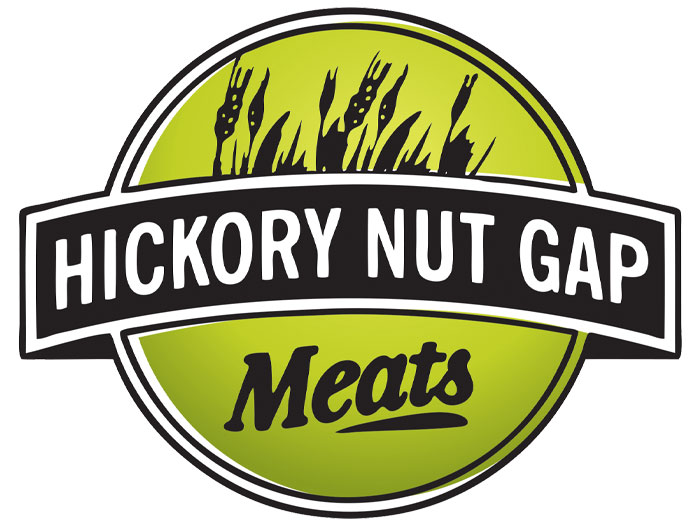Hickory Nut Gap Announces New Partnership With MOM’s Organic Market
December 16, 2024 | 3 min to read
Hickory Nut Gap has expanded its availability of 100% grassfed beef through a partnership with MOM’s Organic Market, now offering products in 26 locations across the Mid-Atlantic and Northeast. This collaboration aligns with both companies' shared values of environmental sustainability and responsible sourcing. Hickory Nut Gap's regenerative practices enrich soil and promote biodiversity, supporting healthier ecosystems. CEO Jamie Ager emphasizes their commitment to transformative agriculture and sustainable meat production for future generations.

Expanding availability of Hickory Nut Gap’s regeneratively raised, 100% grassfed beef throughout the Mid-Atlantic and Northeast.
FAIRVIEW NC — Hickory Nut Gap 100% grassfed beef is now available in more retail locations throughout the Mid-Atlantic and Northeast through an exciting new partnership with MOM’s Organic Market. This collaboration brings Hickory Nut Gap’s regeneratively raised, 100% grassfed beef to 26 MOM’s locations across Washington, D.C., Maryland, Virginia, Pennsylvania, New Jersey, New York, and Massachusetts, deepening Hickory Nut Gap’s availability in these regions through a trusted organic retailer.
MOM’s Organic Market, founded by Scott Nash in 1987, has grown from humble beginnings into one of the nation’s premier chains of organic grocery stores. Known for its commitment to environmental sustainability, MOM’s is an ideal partner for Hickory Nut Gap, as both organizations share values rooted in environmental stewardship and responsible sourcing.
A full assortment of Hickory Nut Gap 100% grassfed and grass finished beef steaks, cuts, and grinds can be found in Pennsylvania at the Abington, Bryn Mawr, and City Center locations; in New Jersey at the Cherry Hill and Paramus locations; in New York at the Dobbs Ferry location; in Massachusetts at the Natick and Burlington locations; in Maryland at the Jessup, College Park, Frederick, Hampden, Timonium, and Waldorf locations, and the soon-to-open Severna Park location; and Washington D.C. at the soon-to-open Van Ness location. Currently, all remaining stores carry both 100% grassfed 80/20 ground beef and Smashburger Blend 70/30 ground beef. All products are supplied and distributed through Four Seasons Produce.
“We are grateful for the opportunity to partner with MOM’s Organic Market and introduce our regeneratively raised meats to new audiences,” said Jamie Ager, Co- Founder and CEO of Hickory Nut Gap Meats. “At Hickory Nut Gap, we are passionate about producing food in a way that nurtures the land, supports family farms, and provides the highest quality products for our customers. We believe this partnership is a natural fit and a major step forward in growing awareness of regenerative agriculture and building a meat industry that is sustainable for future generations.”
At Hickory Nut Gap, regenerative agriculture means that farmers employ managed grazing practices and frequent movement of herds. This enriches the soil and feeds the microbial life underground, sequestering carbon instead of releasing it into the atmosphere. These practices also improve soil capacity to hold water, reducing erosion. Regenerative practices maximize biodiversity on the farm, so microorganisms, plants, pollinators, birds, and small mammals are healthy and contribute to a holistic, functioning ecosystem. Hickory Nut Gap farms follow techniques and monitor outcomes in accordance with metrics and best practices outlined by the Savory Institute.
Through this partnership, Hickory Nut Gap will continue to transform the food system, one pasture at a time, by providing customers with premium meats that support healthier lands, animals, and communities.
About Hickory Nut Gap Meats
Hickory Nut Gap Meats is a pioneering provider of sustainable, regeneratively raised meats, sourcing from family farms across the southeastern United States. Hickory Nut Gap values and respects the complex relationships between humans and nature, supplying 100% grassfed, grass-finished beef, and pasture raised, heritage breed pork to retailers, restaurants, and caring customers. All Hickory Nut Gap animals are humanely raised and never given antibiotics or added hormones. Hickory Nut Gap products are available at Whole Foods Markets regionally, in addition to Ingles Markets, MOM’s Organic Markets, Harris Teeter, Earth Fare, FreshDirect, local and regional grocery cooperatives, restaurants, and specialty food stores across the Southeastern US. Visitors are welcome at Hickory Nut Gap Farm, located at 57 Sugar Hollow Road in Fairview, North Carolina, which features a farm store, events, and opportunities to learn more about regenerative agriculture.
